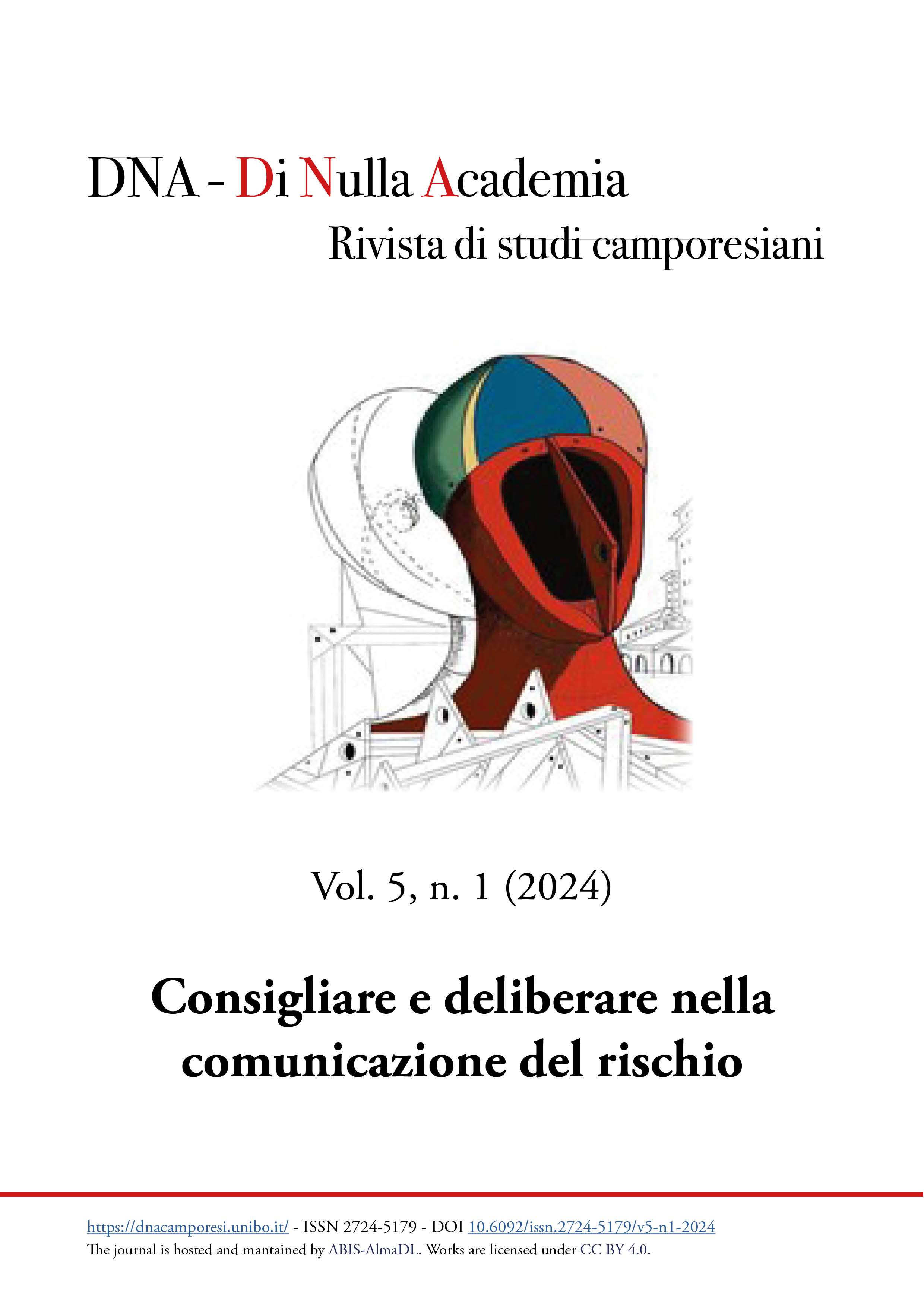L’argomentazione machiavelliana sul rischio tra consilium e deliberatio. I capitoli etico-politici (XV-XVIII) del Principe
DOI:
https://doi.org/10.6092/issn.2724-5179/21474Keywords:
Political risk, Ethics and religion, Argumentative rhetoric, PolitologyAbstract
Although awareness of risk (for both the head of state and the state itself) is an all-pervasive feature in Machiavelli’s works, the ethico-political chapters XV-XVIII in The Prince are particularly useful to highlight this specific argumentative approach. Risk, which the prince could dangerously ignore if he either followed the consilium offered by standard treatises on how to behave or practiced Christian ethics, is thus assessed in an extensive deliberatio. First, Machiavelli does so from a general perspective in chapter XV. Then he addresses common topics in a prince’s political life, such as liberality vs. parsimony (XVI), cruelty vs. “piety” (XVII), and whether to keep one’s word or not. In doing so, the author adopts several techniques, such as the unreal conditional mood, stark rhetorical contrasts, paradoxes and apodictic statements.
Downloads
Published
How to Cite
Issue
Section
License
Copyright (c) 2024 Jean-Jacques Marchand

This work is licensed under a Creative Commons Attribution 4.0 International License.





